★★★
“Miss-nority report”
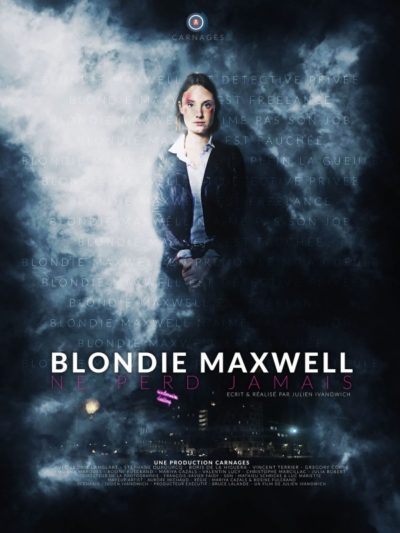 This French film takes place a little way into the future, though society has undergone radical changes. Law enforcement is now privatized, with investigations contracted out to private investigators, who have to balance their costs in order to turn a profit on the cases they accept. One such PI is Blondie Maxwell (Langlart) – and to get the obvious out of the way first, no, she is not blonde It’s mentioned once, but never explained. She is currently on the trail of the terrorist Boloch, who has been mounting a campaign against Chronos Industry, the all-encompassing tech company, which is invested in almost every area of everyday life. The reward would go a long way to solving her perilous financial situation.
This French film takes place a little way into the future, though society has undergone radical changes. Law enforcement is now privatized, with investigations contracted out to private investigators, who have to balance their costs in order to turn a profit on the cases they accept. One such PI is Blondie Maxwell (Langlart) – and to get the obvious out of the way first, no, she is not blonde It’s mentioned once, but never explained. She is currently on the trail of the terrorist Boloch, who has been mounting a campaign against Chronos Industry, the all-encompassing tech company, which is invested in almost every area of everyday life. The reward would go a long way to solving her perilous financial situation.
She gets a case to investigate the murder of an escort. It seems an open-and-shut case with the evidence squarely pointing at a journalist. However, something doesn’t sit right with Blondie, and the more she picks at the crime, the more it seems a set-up job. Even her getting the case seems suspicious, since authorities know she doesn’t have the resources to investigate it properly. The journalist claims the victim was actually his source, who was going to blow the lid of Chronos, not least a “dark” area of their network where murder for hire is bought and sold. Is he telling the truth, and what does this have to do with Boloch and his campaign?
As the tag-line above implies, this bears a significant resemblance to Stephen Spielberg’s Minority Report, with its tale of law and order run by technology. which someone on the inside gradually comes to realize isn’t as idyllic as it seems. This is rather less nuanced. At one point, a colleague of Blondie says, “Our job is to make the world safer. If that means sacrificing a little liberty, it works for me. It works for us all. It’s a choice we make as a society.” However, it’s clear Ivanowich’s sympathies are more aligned with Benjamin Franklin. This is very much a pre-liberty screed, though credit for being at least somewhat ahead of the curve with its concerns about artificial intelligence, an issue of increasing scrutiny in 2023.
Unlike Minority Report, it doesn’t have the budget to create a fully-fledged future society. This one looks like ours in almost every way, just with a few added bits of gadgetry, such as displays embedded into contact lenses. Maxwell’s main trait is her dogged determination to find out the truth, regardless of the personal cost, and she makes for an admirable heroine. As played by Langlart, she’s down to earth, though there were points where it seemed like the script had all but forgotten about Blondie. Either Ivanowich fell too much in love with the setting. or the story might have benefited from fewer characters and a sharper focus. Definitely not terrible though, and a good example of what can be done with imagination instead of budget.
Dir: Julien Ivanowich
Star: Léonie Langlart, Stéphane Dufourcq, Vincent Terrier, Boris de la Higuera





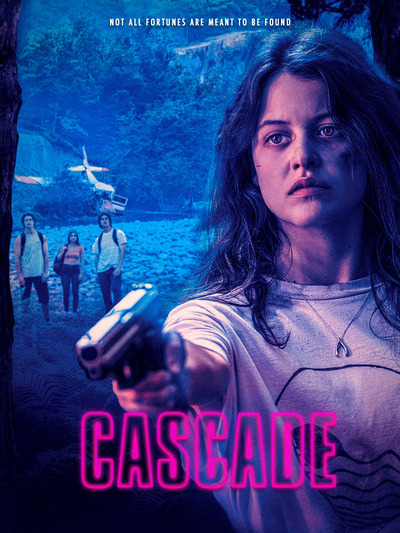 It’s kinda interesting to compare this to
It’s kinda interesting to compare this to  This is the second novel in the author’s Unsanctioned Guardians trilogy, a prequel to her earlier Elioud Legacy series. The new trilogy presents the background of how the three heroines of the first one (all of whom were intelligence agents, though of different nationalities) met and formed their sub rosa partnership as off-the-books rescuers of female victims of sexual abuse and trafficking. In the first book,
This is the second novel in the author’s Unsanctioned Guardians trilogy, a prequel to her earlier Elioud Legacy series. The new trilogy presents the background of how the three heroines of the first one (all of whom were intelligence agents, though of different nationalities) met and formed their sub rosa partnership as off-the-books rescuers of female victims of sexual abuse and trafficking. In the first book, 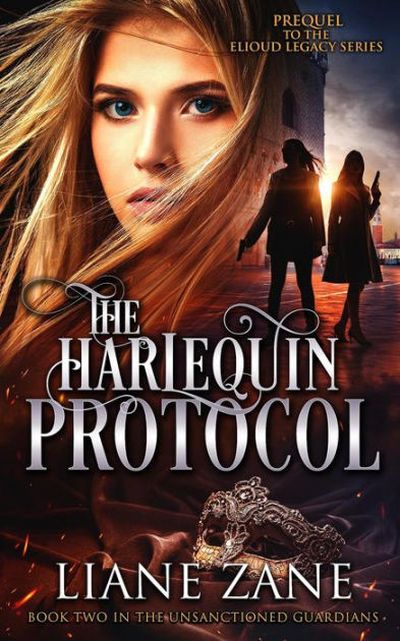 Because the author and I are Goodreads friends, she graciously gifted me with a review copy of the paperback edition of this book, as she has with all of her books, as soon as it was published; though she knew I’d really liked the previous book, she didn’t pressure me for a favorable review, but trusted that the book would stand on its merits. It definitely did; I actually liked this one even better! What earned the added appreciation (and the fifth star) was what I felt was the heightened dimension of moral challenge and choice here, which for me often makes the difference between great and merely good fiction, and which isn’t as strongly present in the first book. Discerning what the right thing is here requires thinking for oneself, not just obeying orders; and deciding to do it comes with a real risk, not just of harm to life and limb, but of disapproval from the powerful, of serious repercussions to one’s career, and maybe of legal punishment. The strong, distinct characterizations of the three heroines, who are each very different individuals though sharing a basic gut instinct for justice and decency, is also a positive feature that makes the book stand out from the pack.
Because the author and I are Goodreads friends, she graciously gifted me with a review copy of the paperback edition of this book, as she has with all of her books, as soon as it was published; though she knew I’d really liked the previous book, she didn’t pressure me for a favorable review, but trusted that the book would stand on its merits. It definitely did; I actually liked this one even better! What earned the added appreciation (and the fifth star) was what I felt was the heightened dimension of moral challenge and choice here, which for me often makes the difference between great and merely good fiction, and which isn’t as strongly present in the first book. Discerning what the right thing is here requires thinking for oneself, not just obeying orders; and deciding to do it comes with a real risk, not just of harm to life and limb, but of disapproval from the powerful, of serious repercussions to one’s career, and maybe of legal punishment. The strong, distinct characterizations of the three heroines, who are each very different individuals though sharing a basic gut instinct for justice and decency, is also a positive feature that makes the book stand out from the pack.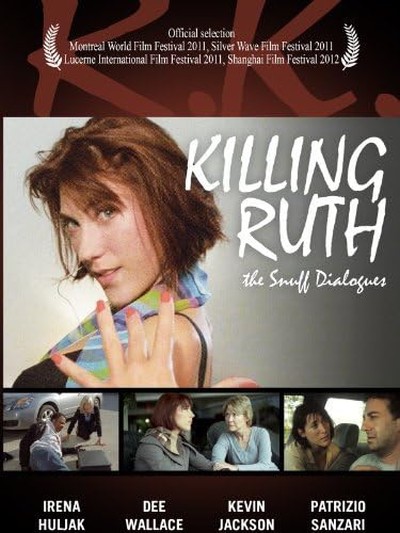 As soon as I saw the running time of this was one hundred and thirty-one minutes, it immediately went onto the back-burner. I have a busy life, and I’ve going to devote close to two and a quarter hours to a low-budget movie, it is going to be when I have a
As soon as I saw the running time of this was one hundred and thirty-one minutes, it immediately went onto the back-burner. I have a busy life, and I’ve going to devote close to two and a quarter hours to a low-budget movie, it is going to be when I have a 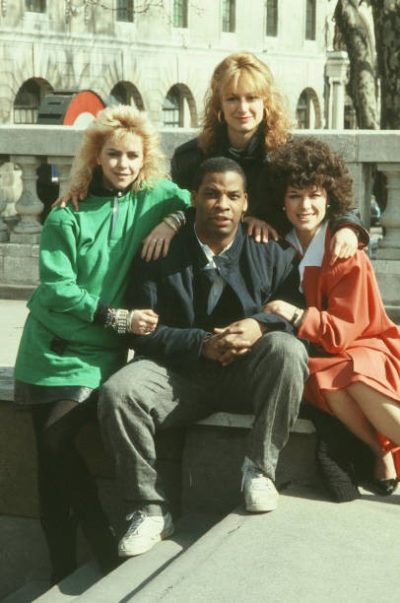
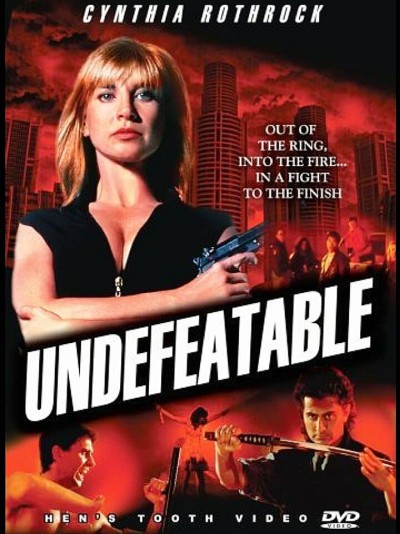 The traditional rule of thumb is, Cynthia Rothrock’s Hong Kong movies are good, but her American ones are bad. The question is, what category should this one be placed? On the one hand, it’s a Hong Kong production. On the other, it’s filmed in America, with an American cast. On the third hand, it’s directed by notorious schlockmeister Ho, as “Godfrey Hall”. I’m painfully aware how much his work can vary in quality, though I’ll confess, I am generally adequately amused. The results here are a real grab-bad of the good, the bad and the laughable. Put it this way: Cynthia is probably close to the best actor. That’s not something you’ll hear often.
The traditional rule of thumb is, Cynthia Rothrock’s Hong Kong movies are good, but her American ones are bad. The question is, what category should this one be placed? On the one hand, it’s a Hong Kong production. On the other, it’s filmed in America, with an American cast. On the third hand, it’s directed by notorious schlockmeister Ho, as “Godfrey Hall”. I’m painfully aware how much his work can vary in quality, though I’ll confess, I am generally adequately amused. The results here are a real grab-bad of the good, the bad and the laughable. Put it this way: Cynthia is probably close to the best actor. That’s not something you’ll hear often. When the best part of a movie is the opening credits, we have a problem. That’s the case here, with an 007-influenced montage that feels as if it cost more than the entire rest of the film to put together. However, by that point, the movie was already on thin ice, because the volume of the music was roughly three times that of dialogue in the pre-credit scene. Lunging repeatedly for the button on the remote is always a red flag for any indie movie, and proved accurate here. The same goes for the gratuitous name-checking of much better black heroines, such as
When the best part of a movie is the opening credits, we have a problem. That’s the case here, with an 007-influenced montage that feels as if it cost more than the entire rest of the film to put together. However, by that point, the movie was already on thin ice, because the volume of the music was roughly three times that of dialogue in the pre-credit scene. Lunging repeatedly for the button on the remote is always a red flag for any indie movie, and proved accurate here. The same goes for the gratuitous name-checking of much better black heroines, such as  Brown is definitely among Netflix’s golden girls. After breaking out with an ensemble role in Stranger Things, she has taken an action turn, starring in
Brown is definitely among Netflix’s golden girls. After breaking out with an ensemble role in Stranger Things, she has taken an action turn, starring in 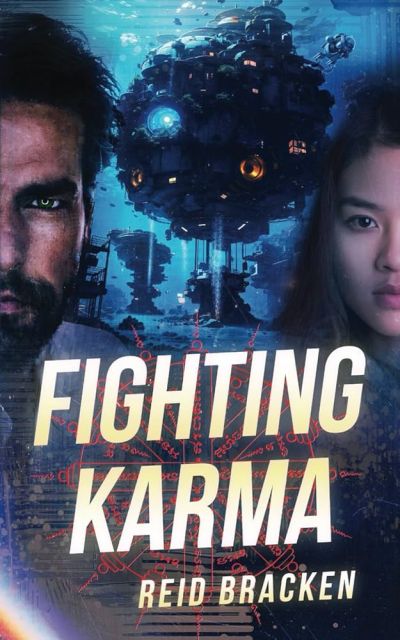 This is a sequel to
This is a sequel to 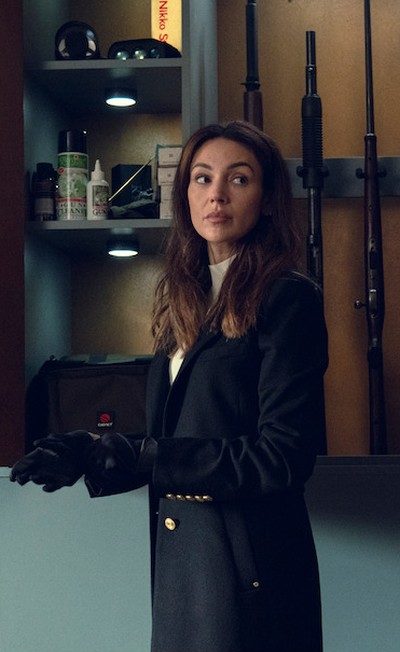 Maya Stern (Keegan) is having a rough patch. A former helicopter pilot in the military, she was sent home and discharged under murky circumstances. While she was away, her sister was killed in what looks like a botched burglary, and not long after her return, husband Joe is also shot and killed in front of Maya, when they are walking in the park. But is everything what it seems? Because when checking the nanny-cam monitoring her young daughter, Maya sees a shocking site: her supposedly dead husband visiting the house. This kicks Maya into an unrelenting search for the truth, which will send her down a rabbit-hole and uncover a lot of sordid secrets, dating back decades.
Maya Stern (Keegan) is having a rough patch. A former helicopter pilot in the military, she was sent home and discharged under murky circumstances. While she was away, her sister was killed in what looks like a botched burglary, and not long after her return, husband Joe is also shot and killed in front of Maya, when they are walking in the park. But is everything what it seems? Because when checking the nanny-cam monitoring her young daughter, Maya sees a shocking site: her supposedly dead husband visiting the house. This kicks Maya into an unrelenting search for the truth, which will send her down a rabbit-hole and uncover a lot of sordid secrets, dating back decades.